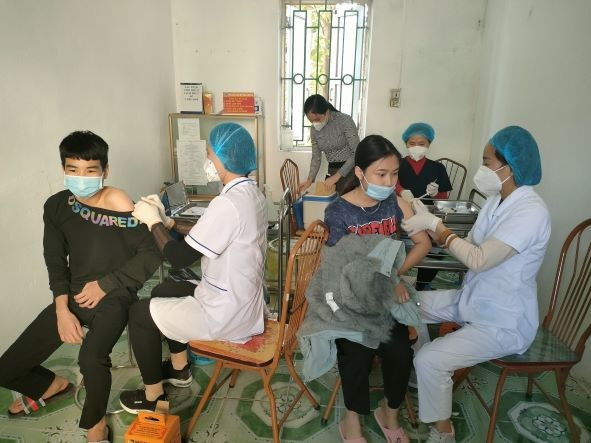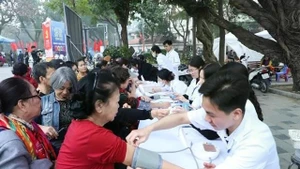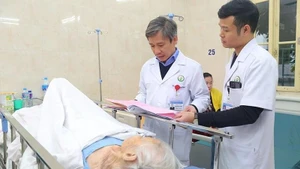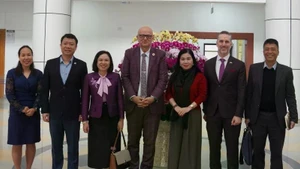Enhancing capacity of medical facilities
In recent years, Hung Yen Province has made substantial investments in healthcare infrastructure, medical equipment, and human resource training to improve medical examination and treatment services and public health. These efforts have yielded remarkable results: the province now has 33 hospital beds per 10,000 people, 10 doctors per 10,000 people, a health insurance coverage rate of 95%, and 100% of communes meeting national healthcare standards.
Several public healthcare facilities, including the Lung Hospital, Traditional Medicine Hospital, Mental Health Hospital, Tropical Diseases Hospital, and Obstetrics and Paediatrics Hospital, have been newly built, renovated, or upgraded with modern equipment to better serve patients.
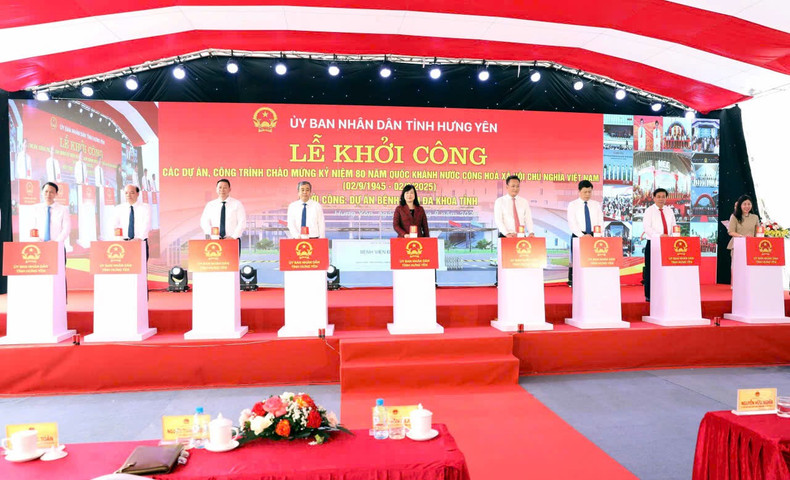
The provincial health sector has implemented various measures to enhance medical ethics and professional competence among healthcare workers. Administrative reform, digital transformation, and the application of information technology in medical examination and treatment have been accelerated with positive outcomes. Digital systems and IT applications have been introduced in areas ranging from health and insurance management to electronic medical records, remote diagnosis, testing, and treatment, in line with guidelines from the Ministry of Health. An integrated information technology system has been deployed for health station management, vaccination, and disease monitoring, linking professional activities with the management of personal health records and population data.
The province has also synchronised the management of personal health records with medical records, non-communicable disease monitoring, and other health-related projects through digital platforms and centralised big data systems.
Measures to improve healthcare quality
Despite these achievements, Hung Yen’s healthcare sector continues to face several challenges. Some medical facilities, especially commune-level health stations, are deteriorating, affecting the quality of medical services. Investment in IT infrastructure remains limited, and a unified information system across the sector is still lacking, hindering data collection, storage, and sharing. Living and working environments, nutrition, physical exercise, and cultural life are not yet fully ensured in many areas. Unhealthy habits and behaviours remain prevalent, the rate of stunted children remains high, and food safety management still has shortcomings.
To address these issues and further improve healthcare infrastructure and service quality, Director of Hung Yen’s Department of Health Nguyen Thi Anh said the provincial health sector is implementing a range of key measures. These include advising competent authorities on reorganising the health system to align with the two-tier local government structure, ensuring a clear and effective division of technical levels, and promoting coordination between healthcare units.
The province will allocate funding to upgrade facilities and equipment for public hospitals, medical centres, and grassroots health stations, enhancing their capacity to meet public demand for accessible, high-quality, and affordable medical services.
Efforts will also focus on developing a comprehensive healthcare infrastructure from the provincial to the grassroots level, prioritising the modernisation of general and specialised hospitals and the establishment of regional-standard high-quality medical centres. The province aims to synchronise the deployment of modern medical equipment and develop commune-level health stations that meet national standards, ensuring primary healthcare and universal health management.
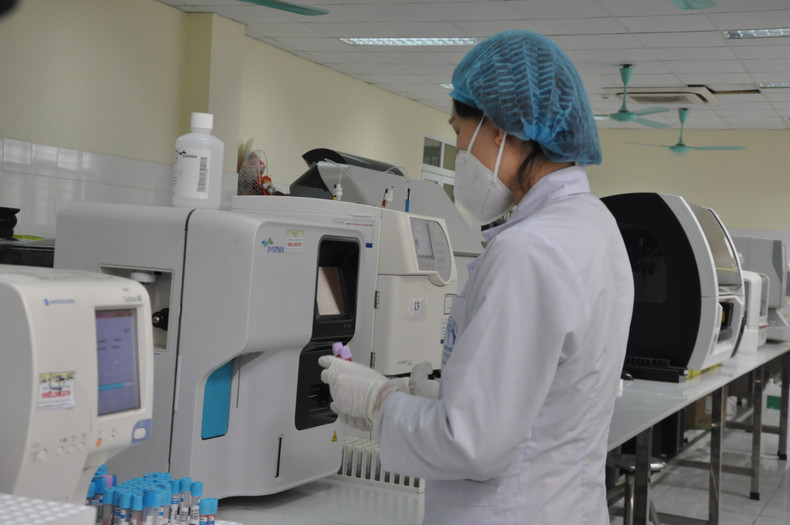
Administrative reform and digital transformation will continue to be strengthened, with the goal of building an integrated IT infrastructure for the healthcare sector. This will enable citizens to access medical information and services more efficiently, contributing to improved public health and quality of life.
Remote consultation and treatment will be expanded to reduce patient overload at higher-level hospitals. The province will promote the socialisation of medical services at public hospitals and encourage private healthcare development to participate in health insurance-covered services. Annual health check-ups for all citizens will be promoted, along with efforts to link healthcare with social welfare and equity.
The province will continue to expand universal health insurance coverage, ensure the rights of insured patients, and pay special attention to vulnerable groups such as children, the elderly, the poor, and people with meritorious service. Preventive medicine and primary healthcare will be prioritised, with stronger supervision of service quality in both public and private facilities. Disease surveillance and control, vaccination coverage, and public health education on disease prevention, nutrition, physical exercise, and longevity will also be enhanced.
Human resource development remains a key focus. Training, professional development, and political education will be strengthened for medical staff at all levels. Policies will be introduced to encourage qualified provincial-level medical personnel to work at district and commune health facilities, improving local healthcare capacity. Cooperation with central hospitals and medical universities will be expanded for training, technology transfer, and remote medical consultation.
The province will mobilise and diversify investment resources in the health sector, promote public-private partnerships, and attract enterprises to invest in high-quality healthcare facilities, private hospitals, specialised clinics, and community health services.
Special attention will be given to strengthening grassroots healthcare, the level closest to the people and the “gatekeeper” of the health system. These facilities must be fully equipped, well-staffed, and technologically capable to provide primary care, disease prevention, chronic disease management, early diagnosis, periodic health examinations, and the use of electronic health records.
The comprehensive implementation of these measures will help Hung Yen’s healthcare sector develop in a modern, equitable, and sustainable manner, improving healthcare quality, enhancing physical stature, extending life expectancy, and raising the overall quality of life for local people.
